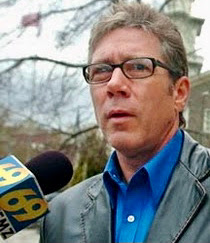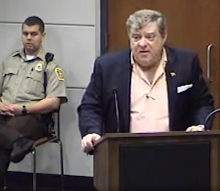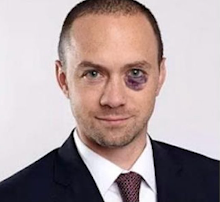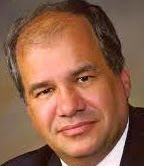 According to Sunday's front page Morning Call story "Left Behind":
According to Sunday's front page Morning Call story "Left Behind":"Under No Child Left Behind, school districts have to set aside 10 percent of their federal money to pay for private tutoring firms if a school with a high percentage of poor students receives three consecutive years of failing standardized test scores on the Annual Yearly Progress reports."
The intention of this federal program under NCLB is to help poor students. The ASD gets $470,000 from the fed. govt. Right now they are only using 3.5 percent of this money, and the rest is wasted.
Here's why, according to the article: There is too much bureaucratic red tape involved with this plan, few low income parents sign students up for private tutors, public schools don't work hard enough to promote the program, Allentown already uses state money (5.4 million) for public school teachers to tutor 3,000 students. So are that many students really being left behind?
This federal plan just seems like a waste. How could Congress approve this? Plus, private tutors are not as familiar with the local standards as the teachers. How about peer tutoring? That would not cost any money. I guess the ASD could be reaching even more students if they were allowed to use the federal money to pay their teachers to tutor students, but this is not allowed under NCLB.
What I think the real issue here is why are there so many poor students who need tutoring to begin with? Where is parental responsibility? Maybe the federal govt. should look into a tutoring program for parents. And it appears like the NCLB plan is more concerned with promoting private companies at the expense of poor students than actually helping poor students. The Dept. of Education is out of touch with reality. Incompetent leadership at the top, and everywhere else. I say, keep more control at state and local levels; it may still be lousy, but maybe not as lousy as the fed. govt.








![Irv Muchnick, Concussion Inc. [The Only Honest Reporting on Martin vs Villa/SLAPP]](https://blogger.googleusercontent.com/img/a/AVvXsEjPD2coV7RQATuCUf-3rw1R677yxUImhkVfkwctN91m7yfi3nNdoiPeWor3ZFheb8-GpJgZmYhLB110qFaj3cJ-Chizn5_-t0OCc58nBiQZ8ExJNvSonqN7DCj2ETWDi4Wy0_OObaC3JgJ5_i8VJtUJ3RFDUDQf0VyiSghcV4xshIX6yCIdMs4SUh6t=s220)
























![[Reneged] City Solicitor Kloiber Bans Cousin Jeffrey Anthony Defamation & Harassment of Villas](https://blogger.googleusercontent.com/img/a/AVvXsEjrGZtm_TCRriA3DHGTVASeEr_XIZD_pQqaf-fCuaf2k-ApQAze7ZAeVU-I6gHcE8Tt6WXadtqw_hAOHjaJe11PiUx2MPPSCMN-MC5RBeCcjKX_DjAhw7IS0eWcKGimIJ9oImiqAkx3jw5l6mT-LnUEQ3U2JmCZyik1BNyiLbXmHr-MSBjt3fMiO6k4=s310)
































![[Reneged] Villa Defense Witness: "Judge" Anthony](https://blogger.googleusercontent.com/img/b/R29vZ2xl/AVvXsEilEA5zRbHJ2QZAT9qDc0rbK8z4aAEOKvk_sodBrrul56cu0MeXGjYPqfiUm1BuTWqDQakCDdKpcM6ozIrgcLLpHcBTlXWl5yC2ODubS5_xHNDtieJnNg-ucIejp3eZORHRROmETUoFGKiW/s220/10653495_508198589366170_7055316366826361693_n.jpg)














































































